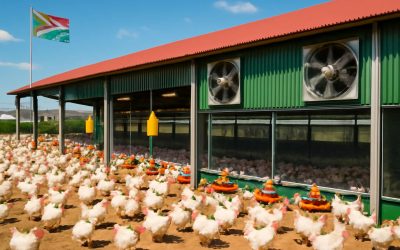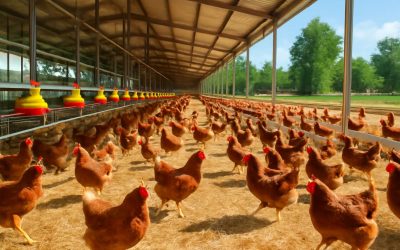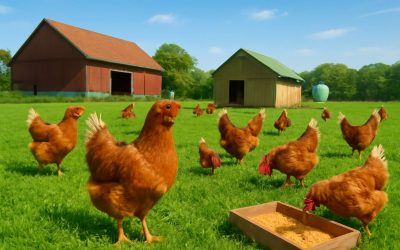
Chicken farming for eggs is a lucrative business. It requires low investment and can give quick return on investment. The demand for poultry is rising with the rapid rise in population and increase in people’s income. Moreover, the demand for organic and free-range eggs has increased significantly in recent years. The growth of this industry has led to the development of more efficient breeding methods. The chicken farming for eggs industry is expected to grow further in the future.
Chickens are easy to take care of, but they require a lot of attention and maintenance. They need to be fed and watered regularly. Moreover, they need to be kept in a clean environment and protected from predators. In addition, the birds need to be checked for illness and disease. They also need to be kept in a safe and secure coop.
If you’re new to poultry keeping, it may be best to start with chicks rather than adults. Pullets, or baby chicks, are cheaper than adult hens and will quickly start laying. However, if you’re not willing to wait for the birds to reach maturity, you can purchase adult hens from auctions or rescue groups. The cheapest adult hens are those from battery farms, but they can be difficult to care for due to their prior life in cages.
Hens raised for egg production in factory farms are often kept in dirty, overcrowded, and dark conditions that prevent them from engaging in natural behaviors like roaming the barnyard, dust bathing, ruffling their feathers, spreading their wings, and eating grass or insects. The hens are also exposed to high levels of ammonia, which is poisonous and can burn a chicken’s skin.
Poultry is capable of consuming large amounts of byproducts that would otherwise be wasted, such as bran, substandard grains, vegetables, and other scraps. This saves the farmer a considerable amount of money on feed costs. This is particularly true for broilers, which are able to be slaughtered at only 10 weeks of age and provide a great profit in terms of meat yield per pound of feed.
Many home flocks of chickens are made up of dual purpose breeds, which produce well as egg layers and can be used for meat later in life. These include Leghorns and Australorps. Unfortunately, these breeds do not lay brown-shelled eggs, and many consumers prefer white-shelled eggs. Male chicks, which are not productive in the egg laying department, are typically killed by maceration, a process that involves dumping the birds on a conveyor belt that then grinds them up without sedation or other pain management. Other culling methods include suffocation and electrocution.



0 Comments